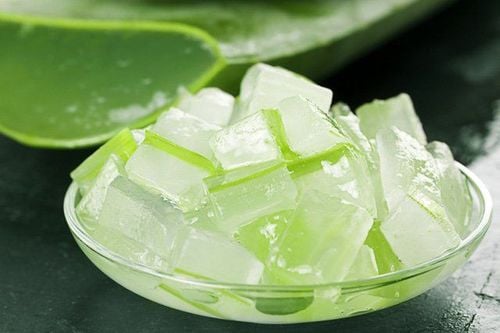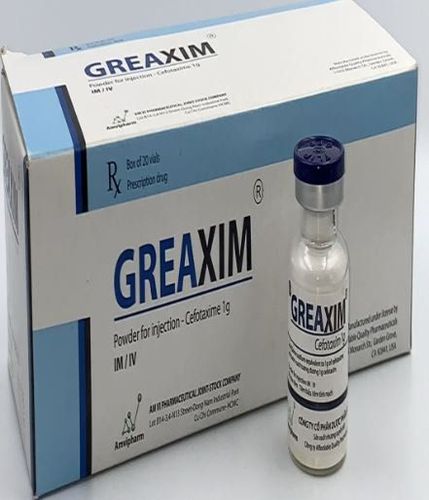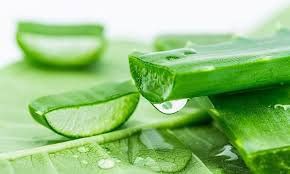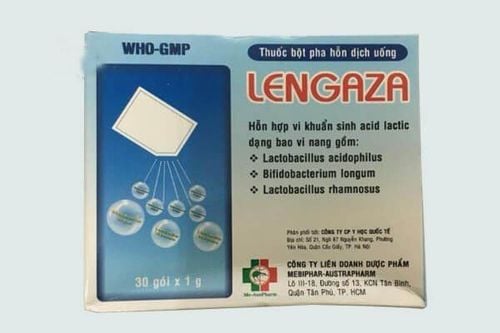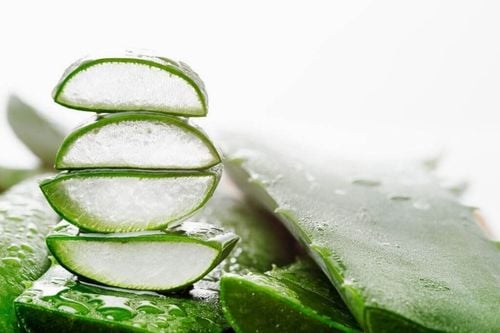This is an automatically translated article.
Aloe vera is often called the tree of immortality because it can live and bloom without soil. Aloe vera has been used in traditional medicine for thousands of years, and studies have linked the plant to a variety of health benefits. For example, the plant is used to treat sunburn, fight dental plaque, and lower blood sugar.1. Is aloe vera safe to use?
Aloe vera leaves consist of three parts: the peel, the gel, and the flesh. The most famous is the gel and fleshy part of the leaf, which is responsible for most of the proven health benefits. Although most users apply the gel to their skin, the gel is also said to be safe to eat.Aloe vera has a naturally aromatic, refreshing taste and can be added to recipes, including smoothies and salsas. To prepare aloe vera, users need to cut off the sharp edges on the top and along the aloe leaf. Next, slice off the skin on a flat surface, remove the clear gel and cut the flesh into small cubes.
At the same time, the user needs to be sure to wash the aloe vera blocks to remove all traces of dirt, debris and residue. Latex residue can give aloe vera an unpleasant bitter taste. Aloe vera resin is a thin layer of yellow liquid between the peel and gel of aloe vera. This resin contains compounds with strong laxative properties, such as aloin. Ingesting the resin portion of aloe vera can have serious and potentially fatal side effects. In contrast, aloe pods are generally safe to eat, having a mild flavor and crunchy texture that helps add flavor to salads.
Alternatively, the crust can be enjoyed by dipping in salsa. To prepare the bark of the aloe vera leaf, users should cut off the sharp edges on the top and along the plant, cut the skin on a flat surface. Then rinse thoroughly to remove any dirt, debris, and sap. Users can also soak aloe vera leaves in water for 10 to 20 minutes before eating to completely remove dirt as well as unwanted texture.
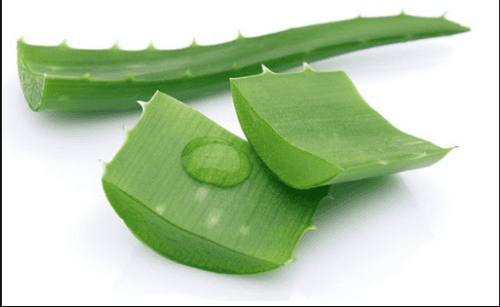
Lá nha đam bao gồm ba phần: vỏ, gel và phần thịt
2. Do not use aloe vera skin care products to eat
Skin gels and other aloe vera skin care products are not meant to be eaten. Instead, they are made to help soothe sunburns, reduce inflammation, moisturize, relieve itching, and treat other dermatological problems. Many commercial aloe vera gels contain preservatives to extend shelf life, as well as other ingredients to improve smell, texture, and color. These ingredients are generally inedible.3. Benefits of using aloe vera
Consuming aloe vera gel from fresh aloe vera leaves has many potential health benefits. Here are some potential benefits of eating aloe vera:Lowering the glycemic index: In human and animal studies, aloe vera gel helped lower blood sugar levels by increasing insulin sensitivity Inhibits inflammation Infection: In animal and test-tube studies, aloe vera extract has been shown to inhibit inflammatory conditions Reduce dental plaque: If used as a mouthwash, aloe vera juice can As effective as regular mouthwash in reducing dental plaque buildup Memory enhancement: In an animal study, consuming aloe vera gel enhanced learning and memory while reducing symptoms Depression Rich in antioxidants: Regularly eating aloe vera can increase the antioxidant levels in the blood. Antioxidants help fight damage caused by free radicals, which are compounds linked to many chronic diseases

Có thể sử dụng gel nha đam để giúp tăng cường trí nhớ
4. Note when using
Aloe vera sap, a yellow substance found inside the leaves, has many potential health risks. In small doses, eating aloe vera can help treat constipation by promoting bowel movements. However, in 2002, the US FDA banned the sale of over-the-counter products containing aloe vera resin because of safety concerns. Long-term consumption of aloe vera resin causes side effects, including stomach cramps, kidney problems, irregular heartbeat, and muscle weakness. At high doses above 1 gram per day, prolonged use can even cause death.Therefore, pregnant women should avoid eating aloe vera, because this substance can stimulate uterine contractions, causing miscarriage. Additionally, people with digestive disorders, such as inflammatory bowel disease (IBD) or Crohn's disease, should avoid consuming aloe vera juice to avoid worsening symptoms. Aside from the resin, the consumption of aloe vera in general is also not recommended for people taking diabetes, heart or kidney medications, as the leaves can reduce the effects of the medication.
Please dial HOTLINE for more information or register for an appointment HERE. Download MyVinmec app to make appointments faster and to manage your bookings easily.
Reference article: Healthline.com



